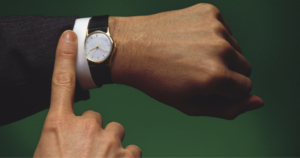Millennials — often associated with technological savvy and progressive ideals—tend to see themselves as the antithesis of Baby Boomers, who grew up in a radically different era.
Yet despite the assumed gulf between the two generations, a close look reveals a contradictory truth: Millennials have quietly inherited a host of Boomer habits, some of which they practice without even realizing it.
When analyzing media narratives around generational clashes, I’ve found that the echo chamber effect on social platforms amplifies stereotypes — like the thrifty Boomer unwilling to adapt or the Millennial glued to a smartphone. These portrayals can obscure the reality that generational lines frequently blur at the level of daily routines.
This contradiction, particularly in the UK where I’m based, appears everywhere from workplaces to social gatherings: just as Boomers adopted certain ways of life from their parents, Millennials, too, absorb earlier practices no matter how modern they believe themselves to be.
A historical perspective shines a light on why these habits persist.
Boomers were influenced by post-war frugality, rising consumer culture, and social movements of the 1960s and 1970s. Millennials, meanwhile, came of age during technological booms and the turmoil of economic recessions.
Why echo chambers overshadow generational nuance
Social media thrives on neat divisions. Tweets and memes pit “Boomer mindsets” against “Millennial thinking” for comedic effect, racking up likes and shares.
These viral snapshots reinforce the notion of a wide gap, even when the real story is more tangled.
A video mocking “Boomer tech confusion” might overshadow the fact that many younger adults depend on older tech etiquette — like polite phone call norms — passed down from parents or grandparents.
The echo chamber thrives on drama.
As a London-based journalist who’s observed the interplay of technology, media narratives, and cultural norms, I’ve seen how quickly internet dialogue escalates. The message boards or comments sections fill with quick takes—“Boomers are clueless about texting!” “Millennials are too reliant on avocado toast and delivery apps!” — yet rarely address the subtle behaviors that cross generational lines. We miss the transitional spaces where old meets new, and we lose sight of how many everyday actions are inherited rather than newly invented.
Rethinking “outdated” traits with a historical lens
By stepping back, we can see that so-called “outdated” habits might embody hidden wisdom or reflect deeper social currents that remain surprisingly relevant.
Let’s explore 7 such habits, placing them in historical context to see how they silently shape Millennial life.
Each trait speaks to a tradition or mindset that Boomers normalized — though it often predates them as well — and that Millennials inherited through family influence, societal norms, or simply by living alongside older generations.
1. Meticulous list-making
For many Boomers, list-making was a pragmatic necessity. In the post-war economy, you shopped with a purpose — often needing to ration or stick to a tight budget.
Over the decades, Boomers carried on the practice of writing out tasks, expenses, and goals on paper, believing it brought order and clarity.
Today, you’ll see Millennials with phone-based to-do apps or sticky notes plastered around their desks, quietly replicating that methodical habit.
Digital or not, the principle remains the same: staying organized by itemizing tasks and expenditures, especially in an era of side gigs and tight finances.
Historically, list-making was a survival tool. For Millennials, it’s an inherited approach to navigating busy schedules—just wrapped in new packaging.
2. Holding on to “good dishes” for special occasions
Boomers often grew up hearing that certain plates, cups, or glassware were too nice for everyday use—reserved for family holidays or formal dinners.
This tradition stretches back to older generations that prized careful preservation of “fine china” as a mark of respectability.
Fast-forward, and many Millennials find themselves with sets of mugs or fancy glassware gathering dust, used only when guests come over.
Even in a minimalist, technology-driven era, the notion of “saving” special items for important events persists. Historically, it signaled a mix of thriftiness and aspiration.
Now, it might be incongruent with a more casual lifestyle, but the ingrained habit of separate “nice stuff” remains—hinting at the cultural weight that ceremonial objects still hold.
3. Fear of “wasting” anything, from groceries to electronics
Boomers experienced either the direct aftermath or the echoes of wartime rationing and economic uncertainty. The lesson: never discard what could still be used.
Leftovers were to be reheated. Clothing was patched. Gadgets were mended if possible, not tossed aside.
In a surprising turn, many Millennials — despite living in a hyper-consumerist age — still demonstrate a reluctance to throw things out unnecessarily. Whether it’s hoarding smartphone boxes or saving half-eaten takeaways in the fridge, there’s a quiet sense of guilt around waste.
Media discussions often focus on sustainability from a modern perspective, but the roots trace back to older generations.
That’s the hidden echo: a thrifty mindset forged by Boomers, living on in the grocery lists and overflowing “junk drawers” of young adults.
4. Placing significant emphasis on personal phone etiquette
Boomers navigated an era of landlines, busy signals, and strictly maintained calling hours. Phone conversations were deliberate, not casual.
Consequently, there was an unwritten rulebook: call at the right time, answer politely, and respect the boundary between private and social hours.
Millennials might rely on texting, voice notes, or social media messaging, yet some of these old rules persist.
Notice how many still hesitate to call someone late at night, or how they brace themselves to speak “properly” once they dial a professional contact. The protocol remains partly ingrained, a testament to telephone manners passed down from parents.
Even in a digital age, echoes of old landline politeness shape how we approach direct voice communication.
5. Using “big ticket” milestones as markers of success
Buying a home, getting married, securing a steady job with benefits—these were the hallmarks of Boomer adult achievement.
While younger people today face different economic realities, the blueprint hasn’t vanished.
Millennials often measure life progress by whether they’ve checked off these “traditional” milestones, feeling anxious if they lag behind peers.
As a London-based reporter watching the housing market spiral in cost, I see how many Millennials cling to the dream of homeownership — even though the financial landscape is drastically different.
The concept of “making it” remains tied to last century’s metric of success. It’s a habit of mind shaped by older generations, persisting despite the gap between wages and housing prices in modern city life.
6. Prioritizing “proper” grammar and cursive writing
Yes, schools taught Boomers formal handwriting drills, and grammar was drummed in with standardized exams.
By contrast, the internet chat culture that Millennials embraced ushered in abbreviations, emojis, and an informality that sometimes grates on Boomer nerves.
But behind the scenes, many Millennials still harbor pride in “correct” writing — they may lambast text-speak in a professional email, or fuss over punctuation in an important social media update.
In analyzing media narratives, I see sensational claims that younger generations care less about language standards.
However, scratch beneath the surface: you’ll find plenty of Millennials who cringe at misused apostrophes or poor spelling.
The historical emphasis on good penmanship and grammar — carried by teachers, parents, grandparents — endures as a quiet but persistent thread in how people communicate.
7. Insisting on face-to-face meetings, even when a digital method would suffice
Boomers valued in-person contact: a handshake sealed a deal, or lunch meetings fostered rapport. This made sense in a pre-Internet era where you either met physically or heard a voice on a phone line.
Strange though it may sound, many Millennials still invest heavily in in-person interactions for pivotal moments — job interviews, project kickoffs, or resolving conflicts.
Online scheduling platforms and remote conference software are the norm, but watch how often digital natives will say, “Let’s meet in person—I want to see them face-to-face.”
It’s a vestige of older social norms about authenticity and trust-building that require a physical presence. Despite modern flexibility, there’s a deep-seated belief that certain things “really shouldn’t” be handled by text or video call alone.
Rethinking generational echoes
The digital echo chamber often highlights generational oppositions — Millennials as the tech-savvy change agents and Boomers as stuck in the past. Yet a historical perspective reveals that daily life isn’t so black and white.
If Boomers learned these habits in the mid-20th century, they likely carried them into family routines, workplaces, and cultural traditions. Over the decades, those habits seeped into the environment where Millennials came of age.
Perhaps what appears “outdated” is just a reflection of deep cultural continuity. Sometimes the best route forward lies in understanding how older practices can adapt — rather than vanish — in new eras.
This reframing insight helps us move away from mocking “old-school” ways or feeling guilty about them. Instead, it encourages curiosity: which habits might still serve a purpose, and how can we modernize them for today’s world?
Direct Message
Recognizing the quiet influence of these “outdated” habits can deepen our sense of connection across generations, turning hand-me-down routines into catalysts for reimagining how we live and work.
Tracing the past to shape the future
In a rapidly changing world, it’s easy to forget how many small-scale habits endure.
The digital echo chamber thrives on painting each generation in broad strokes: Boomers are out of touch — Millennials are unstoppable disruptors. But a deeper historical view reveals that the lines of continuity are often much stronger than the lines of division.
By embracing the paradox that “Millennials are adopting Boomer habits,” we open ourselves to the possibility that certain routines or values remain relevant — even as new technologies and attitudes reshape our daily existence.
There’s something comforting about discovering you’re part of a lineage that extends back farther than you realized, helping you navigate modern life with an inherited sense of discipline, frugality, or courtesy.
Ultimately, the tension between old ways and new can be a source of creativity, not stagnation. Rather than rejecting these hand-me-down habits, we can adapt them — maybe transforming them through a digital twist or aligning them with contemporary priorities like sustainability and mental well-being.
In doing so, we forge a path that not only acknowledges the generational chain of influence but also redefines its significance for a changing world.
















